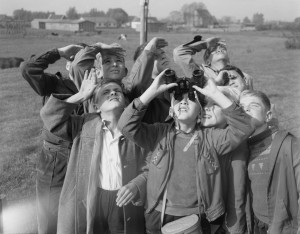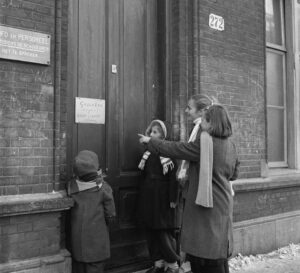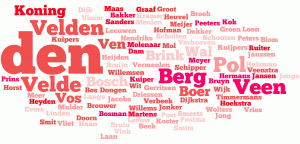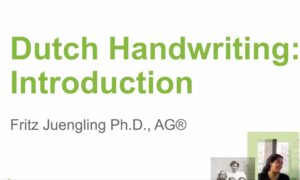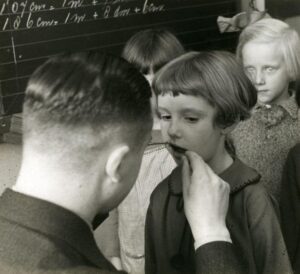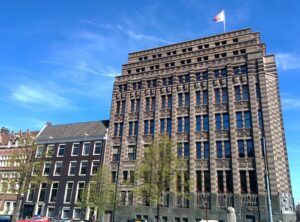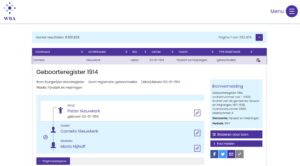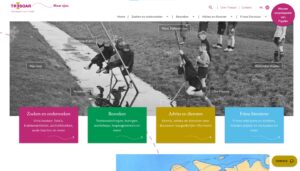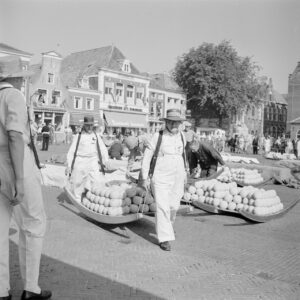In some online trees, you will see "Elders" as the place of birth. This is typically the result of a person who does not speak Dutch finding the reference in a Dutch record. However, "Elders" is not a placename, it means "elsewhere." … [Read more...]
Dutch term – Openingstijden
Openingstijden are opening hours. If you want to visit an archive, check their website for opening hours. Some archives require making an appointment or booking a seat. Archives increasingly have virtual opening hours too, where you can chat with a reading room attendant to ask questions about your research. This chat service can be very helpful if you have quick questions about using the website or which sources to use for your research. … [Read more...]
Ask Yvette – Is my last name Dutch?
One of the questions I get asked frequently in person is whether a certain surname is Dutch. That can be tricky to answer, especially if a name got spelled differently after emigration. To find out where your name comes from requires genealogical research to trace the line that bears the last name back to its place of origin. That being said, here are a few resources to see if a last name occurs in the Netherlands: Database of surnames in the Netherlands. This is the first place to … [Read more...]
Dutch term – Dierentuin
A dierentuin is a zoo. The oldest zoo in the Netherlands is Artis in Amsterdam, founded in 1838. … [Read more...]
Quick tip – Intermediate course on Dutch handwriting
FamilySearch has created an intermediate course for learning how to read Dutch handwriting. In the course, Fritz Juengling discusses strategies and tools for learning how to read Dutch records. The free online course consists of sixteen videos. … [Read more...]
Dutch term – Tandarts
A tandarts is a dentist. Dentists used to travel around for services at regional fairs. It did not become a regular medical profession until the twentieth century. By the 1930s, dentists started coming into schools to make sure the children's teeth were in good health. … [Read more...]
The three most relevant archives
When you are researching, there are archives/repositories at three different levels that may hold relevant records for you. They correspond with the three levels of government: municipality, province, and country. Local or regional archives Each municipality turns over their records to a local or regional archive. Examples of local archives are the Amsterdam City Archives or the Oldenzaal city archives. These municipalities have their own archivist rather than using the services of a regional … [Read more...]
Dutch term – Bladeren
Bladeren means to browse, to turn the pages of a book. You may encounter the term on a button or link when you are using a genealogical website where the index is attached to the whole book rather than to the specific page. By clicking "Bladeren," you will open the book and can look up the page using the details in the index. … [Read more...]
Dutch Genealogy News for September 2021
This is an overview of the new sources, projects, and other news announced last month. Sources The authorization records of Harlingen 1762-1805 [appointments of guardianships] have been imaged and indexed and can be found on AlleFriezen. The town records of Oosterhout in Noord-Brabant 1328-1813 have been scanned. They can be accessed via the finding aid on the website of the Regional Archives of Tilburg. Several Amsterdam notarial records have now been automatically transcribed and … [Read more...]
Dutch term – Kaasmarkt
A kaasmarkt is a cheese market. Many towns in the west of the Netherlands are famous for their cheese, like Gouda and Edam. These towns have their own cheese markets, though the most famous cheese market is in Alkmaar. … [Read more...]
